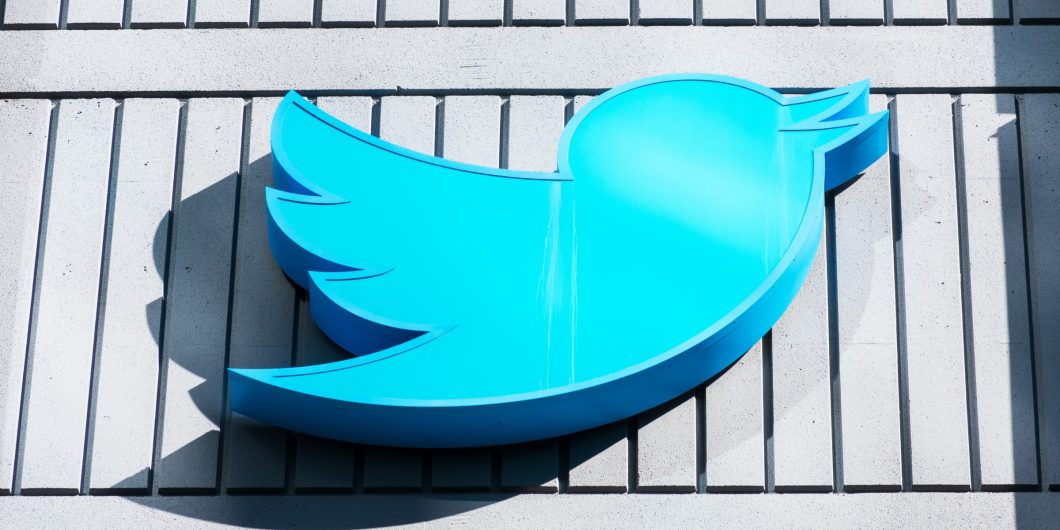Blade Runner presented an influential and prophetic vision of the future.
The Quest for a Better Online "Community"
Remember Justine Sacco? In December 2013, while sitting in Heathrow Airport, she tweeted: “Going to Africa. Hope I don’t get AIDS. Just kidding. I’m white!” She had 170 Twitter followers. No one reacted to her crude crack at her own entitlement. She boarded her flight. Eleven hours later, she landed in Cape Town and turned on her phone. The first thing she saw was a text message from an old friend: “I’m so sorry to see what’s happening.”
While Sacco had been airborne, her tweet had gone horrifically viral. It had stirred up a storm of smug indignation and gleeful anger. A hundred thousand people had tweeted their condemnation, calling her disgusting, stupid, and racist (for a start). The hashtag #HasJustineLandedYet had trended. “All I want for Christmas,” typed one member of the mob, “is to see @JustineSacco’s face when her plane lands and she checks her inbox/voicemail.” Sure enough, someone took a photo of Sacco arriving in Cape Town, and that went viral. She promptly lost her job.
As Jon Ronson recorded in his 2015 book So You’ve Been Publicly Shamed, Sacco’s ordeal is emblematic of life on Twitter. “Everyday people, some with young children,” he found, get “annihilated for tweeting some badly worded joke.” At its worst, the platform seems like a plot device for an episode of The Twilight Zone or Black Mirror (as, in the latter case, it has been). If Twitter is now the “town square,” as some like to claim, it is a disturbing one. “Try to get a group of 100 ideological allies together to follow someone around a public park in the center of town shrieking at them,” the internet researcher Renée DiResta muses, “and see how that plays out.”
Kingsley Amis once complained that the word “brutalize” has been “perverted by Americans and others to mean ‘treat brutally.’” The term was “once happily and usefully settled,” he reminded us, “in the meaning of ‘render brutal.’” Clutching the strict definition tightly, we might ask: Has Twitter brutalized us? Has it made us into brutes?
The news of the day (the fate of Roe v. Wade excepted) is that Elon Musk, the richest man in the world, has reached a deal (in principle) to buy Twitter. Conservatives have rejoiced at this turn of events, and well they may.
The major social media platforms have gone, in just a few years, from blocking beheading videos to arbitrating truth. They now take it upon themselves to supervise public debate, such as by suppressing discussion of the Covid lab-leak theory. And they have fallen into the habit of granting special protections to favored groups. The Babylon Bee, for instance, has been suspended from Twitter for months. Is this because the parody site, say, baselessly labeled someone a white supremacist? Of course not; they tweeted a satirical headline that misgendered a public figure. (On Twitter, it appears, all insults are equal, but some insults are more equal than others.)
Conservatives look upon all this and see oppression. They hope that, with Twitter under Musk’s control, a new balance will be struck. Fair enough. An argument about how actively the platforms should moderate content is an argument worth having.
Many conservatives go much further, however. They assert not that Twitter should block less speech, but that Twitter should hardly block speech at all. Musk himself has followed their lead, floating the idea that the site should allow all speech “within the bounds of the law.” But that’s a pipe dream. The category of legal speech includes racial slurs, graphic violence, targeted harassment, and worse. Every social media service discovers, sooner or later, that content moderation is unavoidable. Presented with hard cases, Musk retreats.
But set to one side the weakness of the anything-goes position. Instead, consider who is promoting it. Of all the possible universes, we have landed in one where some conservatives are fighting tooth and claw for havoc, for anarchy, on Twitter. How contingent. How surprising!
The “essence” of conservatism, declared Robert Nisbet, is “the protection of the social order.” As a conservative himself, therefore, Nisbet worried about “personal alienation and cultural disintegration.” Hardly anyone did more to define the American conservative movement than Russell Kirk—and he shared Nisbet’s concerns. Kirk believed that “modern society urgently needs true community,” by which he meant social relationships “governed by love and charity.”
What might accelerate “cultural disintegration” and undermine “true community”? Lax conduct and dissolute beliefs, the conservative once replied. Robert Bork used to fret about slipping standards of “permissible public behavior and language.” In 1995, in fact, he predicted with dismay that “the new technology” of the Internet would “almost certainly make our culture more vulgar and violent.”
It’s difficult to know what, now, to make of these statements. Are they the entrails of a dead ideology? Surveying Twitter, with its invective and its baseness, its incels and edgelords and roving gangs of psychopaths, would Nisbet, Kirk, and Bork throw up their hands? Maybe. Then again, maybe not. An alternative possibility is that their comments point to a path not taken—a world in which conservatives are the ones pushing for more respect, more civility, and more community on the web.
Hand conservatives the keys to Twitter and Facebook—and TikTok and Snapchat and Reddit—and liquid modernity would continue to corrode every variety of hierarchy and tradition.
Do conservatives really have no aspirations for social media beyond stopping so-called “Big Tech censorship” and “owning the libs”? If so, they might ask whether social media itself has goaded them into shutting their minds. The social psychologist Jonathan Haidt contends that social media is causing “structural stupidity.” He likens a Twitter account to a dart gun: a mean tweet can be used “to shame or punish someone publicly while broadcasting one’s own virtue, brilliance, or tribal loyalties.” Handing these dart guns to millions has, in Haidt’s view, harmed our political process, our culture, and our societal health.
On social media, observes Haidt, bad rhetoric often drives out good. “The dart guns of social media,” he submits, give “power to trolls and provocateurs while silencing good citizens.” A “small number of jerks”—the loudest, meanest users—often come to “dominate” a forum. “The main thing I have learned from Twitter,” the tech entrepreneur Sam Altman tweeted not long ago, is that “people appear to derive great satisfaction from being unhappy.” As Altman would be the first to recognize, those unhappy people are self-selected. “Nonjerks,” Haidt wryly remarks, “are easily turned off from online discussions of politics.” As “a small number of aggressive people . . . attack a much larger set of victims,” those victims—that is, the sane people—absent themselves from the conversation. The upshot, concludes Haidt, is an online discourse that tilts toward hysteria and barbarism.
The jerks, Haidt goes on, are outliers not only in tone, but also in substance. Blowhards, generally speaking, are not skeptics. “The dart guns of social media give more power and voice to the political extremes,” therefore, “while reducing the power and voice of the moderate majority.” This is mainly because the jerks, with their strong opinions—and the aid of algorithms that boost provocative content—rule the roost. But Haidt also identifies a more insidious factor: social media strengthens fanatics’ ability to demand loyalty and purity. “Political extremists,” Haidt notices, “spend a lot of their ammunition targeting dissenters or nuanced thinkers on their own team.” On both Left and Right, it is now “more hazardous to be seen fraternizing with the enemy or even failing to attack the enemy with sufficient vigor.”
Of particular concern, “younger progressive activists” use social media to intimidate the “older liberal leaders” of elite institutions. Bending to the will of the radicals, health officials put politics above the practice of medicine, museum curators denigrate their own collections, corporate executives denounce their own customers, and magazine editors snivel about their privilege and ignorance. Expertise and legitimacy are burned at the altar of social justice. At institutions where “dissent is punished” and moderates have “learned to keep quiet,” Haidt sighs, “bad ideas get elevated into official policy.”
Haidt acknowledges that social media has “given voice to some people who had little previously” and “made it easier to hold powerful people accountable for their misdeeds.” What worries him, ultimately, is not social media per se, but what he calls “enhanced virality.” On Twitter, jokes Nilay Patel, editor of the tech news website The Verge, “the worst possible thing” could happen to you “at any moment”—namely, your “tweet will go viral.” The zealots will assemble, and you will find yourself at the center of the next pile-on, mass-shaming, or vicious political dispute. Though not without its charming corners, in the end Twitter functions as a giant Thunderdome.
The root of the matter, it would seem, is size. “I think scale is problem number one,” says a former Facebook product manager. In our “quest for community”—to borrow Nisbet’s phrase—we might need to rediscover the value of the small and the local. “Communities and cultures differ on what norms and values should shape their common spaces,” DiResta explains. “It may simply be that when networks grow past a certain size, they become unmanageable.”
While politicians, pundits, and the wider professional-managerial class obsess over what can be said on the major platforms, programmers are trying to diminish the issue altogether. As the Wall Street Journal recently reported, one social media startup aims to curb abuse by “capping the size of groups.” Another is placing users’ content “behind their user icon, no matter how often they post,” in an attempt to create space for “the quieter, more moderate voices.” Yet another is trying to cool the rhetoric down by engaging more with users who violate the rules. Facebook, the article reveals, is working on “community messaging, building tools that make it easier to connect with small groups of family and friends.”
Twitter, meanwhile, is supporting a project called Bluesky, an effort to create a common protocol on top of which distinct social media products can operate. Services could offer competing newsfeed algorithms and standards of content moderation. Groups could coalesce around shared interests, set their own rules of governance, and decide for themselves how much to interact with the wider system. Power would be dispersed. More speech would be allowed; less speech would go viral. Ideally, there’d be a little more freedom, a little more community, and a lot fewer Justine Saccos.
“Heavyhanded attempts to censor extremism are bound to fail,” insists Freddie deBoer, the prominent Marxist Substacker, “because the flow of information cannot be stopped in the digital era.” His point, directed at liberals, is that no amount of content moderation will stamp out opinions they dislike. He could easily have looked the other way, though, and reminded conservatives that the Internet is much more than a given social media platform. Should Twitter be more open? More closed? More decentralized? Should it focus on free speech? Safety? Healthy conversation? What we want here matters—but not a lot. The “digital era” will roll on regardless.
If you believe that Twitter is biased in favor of liberals, by all means applaud Musk’s deal to purchase it. When you’re done, though, pause and reflect. Hand conservatives the keys to Twitter and Facebook—and TikTok and Snapchat and Reddit—and liquid modernity would continue to corrode every variety of hierarchy and tradition. Some have turned grousing about content moderation into a pastime, a passion, or a source of profit. Maybe that’s time well spent. Then again, maybe it’s not. The rest of us might be better off devoting ourselves to something else, like the hard work of building a sense of community, online and off, in a coldly postmodern world.



